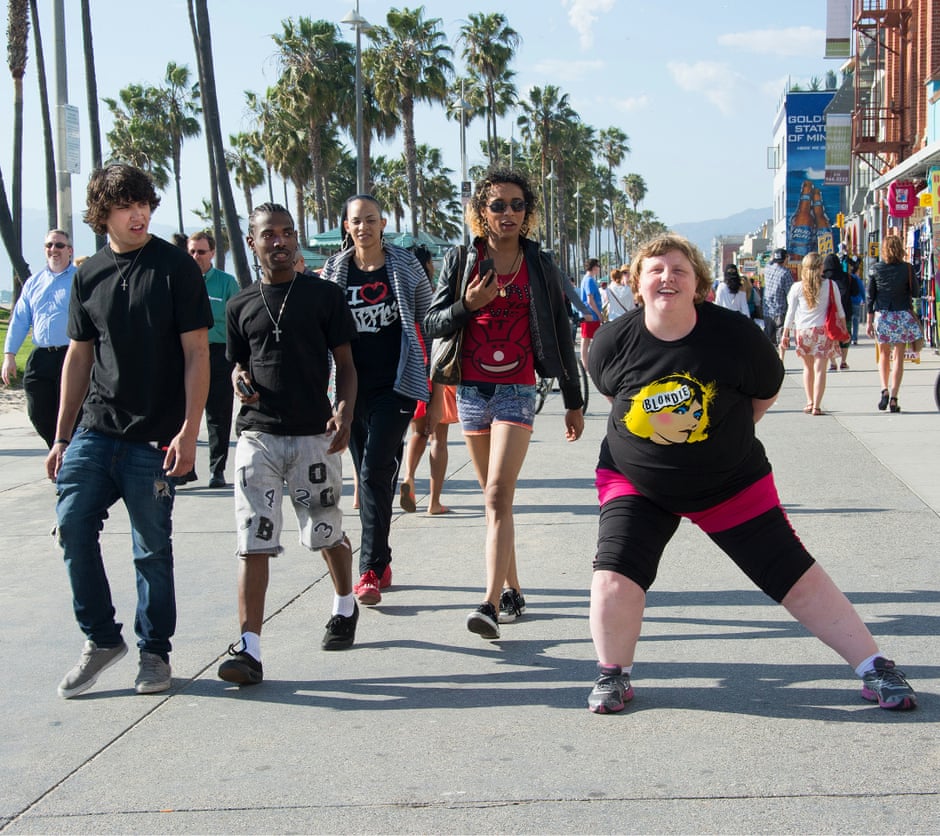Photography lecturer puts cyberbullies in the frame
Date 24.02.2023
24.02.2023
An exhibition from the recently established Centre for British Photography* features British female photographers whose imagery explores women’s issues from cosmetic surgery to pregnancy and online trolls.
One of the featured artists is Haley Morris-Cafiero, Senior Lecturer in Photography and here, she talks about her collection, what it’s like being a woman in a man’s world and how this is changing.
What’s your ‘take’ on why photography is a male-dominated profession?
Well, most professions are. It is caused by a combination of factors. Society perpetuates an image of women as weaker and incapable of working in complex situations and disciplines. Often times, women chose (or felt obligated) to be caregivers and having children or caring for loved ones delays their career work.
Institutions and men with power in the photography world have given male photographers a platform of authority for decades. The power and opportunities were passed from male photographer to male photographer. But now, the system is changing to give a voice to women and non-binary photographers from diverse backgrounds and experiences.
What’s happening in the industry now to promote, develop and support female photographers?
Thankfully, over the last few years, institutions and organisations have been hiring women and non-binary people from GEM and diverse backgrounds into roles that have the power to highlight photographers who were previously marginalised.
Grants and bursaries have been established to support female and photographers from other marginalised groups. One way that I have addressed the gap in support of female photographers is by co-establishing a mentorship programme for female photographers over the age of 35 whose work has not been published in a monograph or exhibited in a solo exhibition. We received a grant to fund the year-long programme that provides speakers, mentorship, portfolio reviews and workshops to 24 female photographers from all over the UK.
How did you start out as a photographer? What barriers did you come up against?
I was planning on being an attorney when I started university in the United States. When I took a photography course as an elective, we printed images in the darkroom. I immediately fell in love with the discipline and changed my major to photography. My photography has always been my activist tool to inspire change and challenge society’s female body standards. As my body, one that is overweight and is highly discriminated in society and is the subject of my photographs, I often face a challenge in finding institutional support and collections outcomes for the projects.
What is The Bully Pulpit about and what do you want to achieve with this collection?
The Centre of British Photography is a new centre in London that will highlight photography that was created in Britain or by British photographers. I am honoured to be included in one of the first exhibitions for the Centre as it has framed my work within the British photography scene. I am an American who moved to the UK 5 years ago and this gives me another connection to the UK as my home.
The Bully Pulpit is included in an exhibition curated by the Fast Forward: Women in Photography platform called ‘Headstrong’ and explores self-portrait photographs made by female photographers. My series is a perfect fit for the exhibition because they are images that are my revenge and response to people who cyberbullied me. I found the public profiles of 25 of my cyberbullies, costumed myself to look like them and included their hateful comment in the photograph. They use the internet like a weapon to spread hate and I am educating them that the internet cannot protect them from someone responding to their attacks.
What would be your main advice/tips to budding female photographers who want to get started in the profession?
My advice to emerging female photographers who want to get started is to take risks with your photography and put yourself and the work out there by engaging with other creatives. This can be done by attending festivals, exhibition openings, etc. On UON’s BA Photography programme, we encourage students to challenge their skills and aesthetic choices by introducing them to a wide range of still and moving image techniques by creatives from a wide range of backgrounds and experiences. We support our students engaging with the art world and industry opportunities by hosting internationally renowned creatives and host field trips to exhibitions and events.
*Find out more about Headstrong: Women and Empowerment which runs until Sunday 23 April.